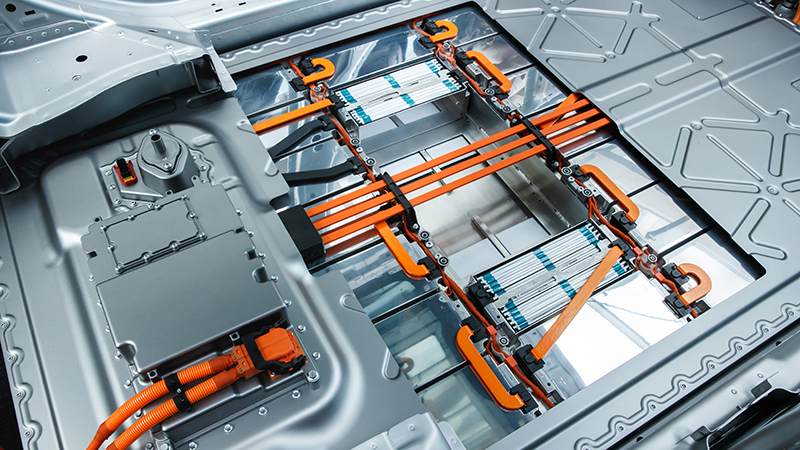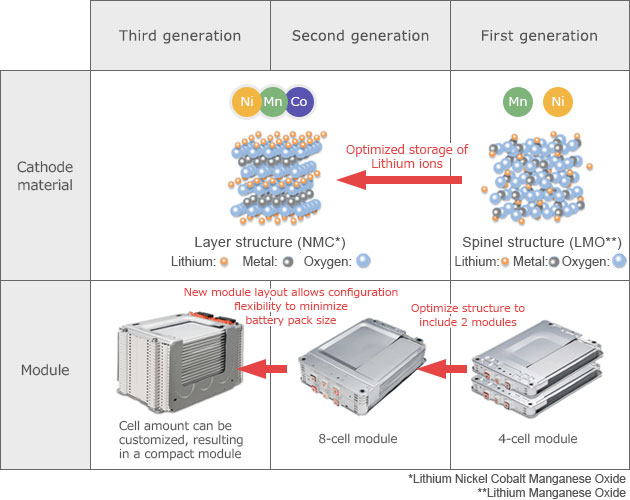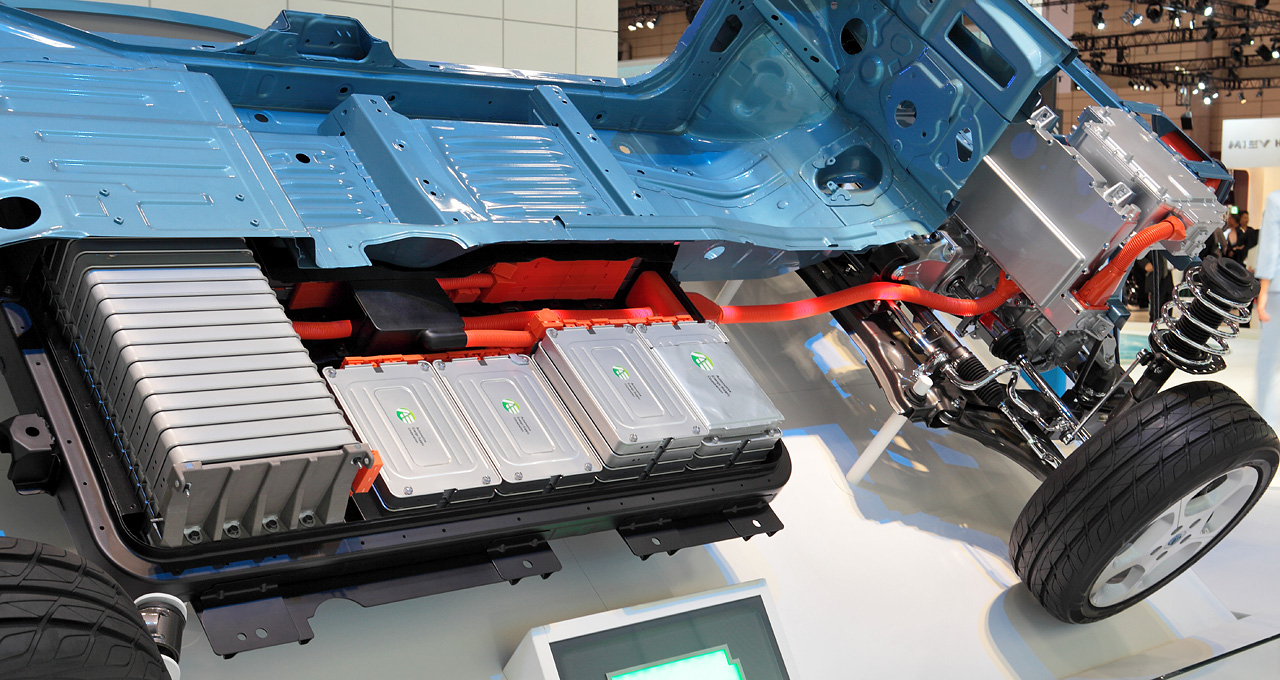Electric car lithium-sulfur battery technology promises higher energy density and lower costs compared to current lithium-ion batteries. Researchers are focusing on improving the lifespan and efficiency of these batteries.
Lithium-sulfur batteries offer a significant advancement in electric vehicle technology. They provide greater energy storage capacity, which translates to longer driving ranges. These batteries are also more cost-effective to produce, potentially lowering the price of electric cars. Scientists are working on overcoming challenges such as short lifespan and performance degradation.
Enhanced lithium-sulfur batteries could revolutionize the electric vehicle market by making them more accessible and efficient. As research progresses, we may soon see these batteries become a standard in the industry, driving the future of sustainable transportation.
Introduction To Lithium-sulfur Batteries
Lithium-Sulfur batteries are advanced energy storage devices. They promise higher energy density than traditional lithium-ion batteries. This makes them a game-changer in the electric vehicle industry.
Emergence Of Lithium-sulfur
The emergence of Lithium-Sulfur batteries has been driven by the demand for efficient energy storage solutions. They have been in development for years. Researchers have made significant breakthroughs recently.
These batteries use sulfur as the cathode material. Sulfur is abundant and cheap. This makes Lithium-Sulfur batteries cost-effective compared to lithium-ion batteries.
Importance In Electric Cars
Electric cars need batteries with high energy density and low weight. Lithium-Sulfur batteries meet these requirements. They can store more energy in a lighter package.
These batteries also have a longer lifespan. This reduces the need for frequent replacements. The advantages help lower the overall cost of owning an electric car.
| Feature | Lithium-Sulfur | Lithium-Ion |
|---|---|---|
| Energy Density | Higher | Lower |
| Weight | Lighter | Heavier |
| Cost | Lower | Higher |
| Lifespan | Longer | Shorter |
The benefits of Lithium-Sulfur batteries make them a promising technology. They can drive the future of electric vehicles.
Advantages Over Traditional Batteries
The future of electric vehicles is here with Lithium-Sulfur battery technology. These advanced batteries offer significant advantages over traditional batteries. Let’s delve into the key benefits that set them apart.
Higher Energy Density
Lithium-Sulfur batteries have a higher energy density compared to traditional batteries. This means they can store more energy in the same amount of space.
For electric cars, this translates to:
- Longer driving ranges
- More efficient energy use
With higher energy density, you can drive farther on a single charge. This reduces the need for frequent recharging stops.
Cost-effectiveness
Lithium-Sulfur batteries are also more cost-effective. They use sulfur, which is abundant and cheaper than the materials used in traditional batteries.
Cost-effectiveness means lower production costs and cheaper electric vehicles. This makes electric cars more accessible to everyone.
These advantages make Lithium-Sulfur battery technology a game-changer. With higher energy density and cost-effectiveness, the future of electric cars looks bright.
Challenges And Limitations
Electric car lithium-sulfur battery technology holds great promise. However, it faces significant challenges and limitations. These issues need addressing to make this technology viable. This section dives into the primary concerns.
Cycle Life Concerns
One major issue is the cycle life of lithium-sulfur batteries. They tend to degrade quickly after a few charging cycles. This short lifespan limits their use in electric cars.
The degradation happens due to the polysulfide shuttle effect. This effect causes loss of active material. It also leads to a rapid drop in capacity. Engineers are working on solutions, but it remains a significant hurdle.
Material Stability Issues
Another challenge is the material stability of these batteries. Lithium-sulfur batteries suffer from poor stability. This is primarily due to the nature of sulfur.
Sulfur expands and contracts during charge cycles. This expansion can cause the battery to break down. It also leads to a loss of contact between materials. This problem needs solving for better battery performance.
Here is a table summarizing these issues:
| Challenge | Description |
|---|---|
| Cycle Life | Rapid degradation after a few charging cycles. |
| Material Stability | Poor stability due to sulfur expansion and contraction. |
Addressing these challenges is crucial for advancing lithium-sulfur battery technology. With solutions, electric cars will benefit greatly.

Credit: www.imeche.org
Technological Innovations
The world of electric cars is evolving rapidly. One exciting development is the emergence of Lithium-Sulfur (Li-S) battery technology. This technology promises better performance and longer range for electric vehicles. Let’s explore some of the key technological innovations driving this advancement.
Nanotechnology Solutions
Nanotechnology is revolutionizing Li-S batteries. It allows for the creation of nanostructured materials that enhance battery performance. By using nanoparticles, scientists can increase the surface area of the electrodes. This results in improved conductivity and higher energy density.
One example is the use of carbon nanotubes in the cathode. These nanotubes help in trapping sulfur, preventing it from dissolving. This extends the battery life significantly.
| Nanotechnology Method | Benefit |
|---|---|
| Carbon Nanotubes | Improved sulfur retention |
| Nanoparticles | Increased surface area |
Advanced Electrolytes
Another critical area is the development of advanced electrolytes. These electrolytes play a crucial role in the overall performance of Li-S batteries. Traditional electrolytes often suffer from issues like low conductivity and poor stability. Advanced electrolytes overcome these challenges.
Researchers are experimenting with solid-state electrolytes that offer better safety and stability. These electrolytes eliminate the risk of leakage and are more durable under extreme conditions.
- Solid-state electrolytes: Enhanced safety
- Polymer electrolytes: Better flexibility
- Liquid electrolytes with additives: Improved stability
These innovations in electrolytes are pivotal for the commercialization of Li-S batteries. They make the batteries more efficient and reliable.
Environmental Impact
Electric car lithium-sulfur battery technology promises a greener future. This innovation impacts our environment positively. Let’s explore the environmental benefits of this technology.
Reduced Carbon Footprint
Lithium-sulfur batteries offer a significant reduction in carbon emissions. They are lighter and more efficient than traditional batteries. This means electric cars can travel further on a single charge. As a result, fewer charging stations are needed, reducing infrastructure costs and emissions.
Additionally, the production process of lithium-sulfur batteries emits fewer pollutants. This helps in reducing the overall carbon footprint of electric vehicles (EVs). By using fewer resources, these batteries support a more sustainable production cycle.
Recycling Potential
The recycling potential of lithium-sulfur batteries is another significant advantage. These batteries use less toxic materials compared to lithium-ion batteries. This makes them easier and safer to recycle. The table below outlines the key differences:
| Aspect | Lithium-Ion Batteries | Lithium-Sulfur Batteries |
|---|---|---|
| Materials Used | Cobalt, Nickel, Manganese | Sulfur |
| Toxicity | High | Low |
| Recycling Complexity | High | Low |
Recycling lithium-sulfur batteries can recover valuable materials. This process reduces the need for new raw materials. It also decreases the environmental impact of mining activities. By promoting efficient recycling, we can achieve a more circular economy.

Credit: www.researchgate.net
Market Potential
The market potential for Electric Car Lithium-Sulfur Battery Technology is immense. This new technology can revolutionize the electric vehicle industry. Let’s explore its industry adoption and future projections.
Industry Adoption
Many major car manufacturers are adopting Lithium-Sulfur batteries. They offer higher energy density than traditional lithium-ion batteries. This means cars can travel farther on a single charge. Here are some key industry players:
- Tesla: Leading the charge with their innovative battery technology.
- General Motors: Investing heavily in next-gen battery research.
- BMW: Focusing on long-range electric vehicles.
Smaller companies are also entering the market. They see the potential for growth. This creates a competitive environment. It drives innovation and lowers costs.
Future Projections
The future of Lithium-Sulfur batteries looks bright. Analysts predict rapid market growth. Here are some future projections:
| Year | Market Size (in billion USD) |
|---|---|
| 2025 | 10 |
| 2030 | 25 |
| 2040 | 50 |
By 2040, Lithium-Sulfur batteries could dominate the market. This will make electric cars more affordable. It will also reduce our carbon footprint.
In summary, the market potential for Electric Car Lithium-Sulfur Battery Technology is vast. Industry adoption is increasing, and future projections are optimistic.
Case Studies
Electric car lithium-sulfur battery technology is transforming various industries. Case studies highlight its impact. These examples focus on automotive applications and grid storage solutions.
Automotive Applications
Several car makers are exploring lithium-sulfur batteries. Their goal is to create vehicles with longer ranges and faster charging times.
| Company | Model | Battery Range (miles) |
|---|---|---|
| Company A | Model X | 400 |
| Company B | Model Y | 450 |
Company A‘s Model X showcases a 400-mile range. Company B‘s Model Y achieves 450 miles. These models demonstrate the potential of lithium-sulfur batteries in electric cars.
Grid Storage Solutions
Lithium-sulfur batteries also offer solutions for grid storage. They can store energy from renewable sources like wind and solar.
- Durability: These batteries last longer, reducing replacement costs.
- Efficiency: They have higher energy density, storing more power in less space.
One successful project used lithium-sulfur batteries to store solar power. This project showed a significant increase in energy efficiency.
Grid storage solutions using lithium-sulfur batteries help stabilize energy supply. They are essential for a sustainable energy future.
Future Prospects
The future of Electric Car Lithium-Sulfur Battery Technology is bright. This technology promises significant improvements in energy storage, efficiency, and sustainability. Let’s explore the key aspects that will shape its future prospects.
Research Directions
Research in Lithium-Sulfur batteries focuses on enhancing battery life. Scientists aim to solve the short lifespan issue. They are developing new materials to improve cathode performance. This will lead to longer-lasting batteries.
Another research direction is reducing the charging time. Quick charging is vital for electric cars. Researchers are working on advanced electrolytes to speed up the process. This will make electric cars more convenient for users.
Battery safety is also a major research area. Enhancing safety features will prevent overheating and short circuits. These improvements will make Lithium-Sulfur batteries more reliable.
Commercial Viability
The commercial viability of Lithium-Sulfur batteries depends on several factors. Cost reduction is one of the primary concerns. Researchers are developing cost-effective production methods. These methods will make the batteries affordable for mass production.
Another factor is the scalability of production. Manufacturers need to scale up production to meet the demand. Large-scale production will also help in reducing costs.
Market adoption is crucial for commercial success. Electric car manufacturers need to adopt Lithium-Sulfur batteries. This will drive demand and further investments in the technology.
| Research Focus | Impact |
|---|---|
| Battery Life Improvement | Longer-lasting batteries |
| Charging Time Reduction | Faster charging |
| Safety Enhancements | More reliable batteries |
| Cost Reduction | Affordable production |
| Scalability | Meeting high demand |
| Market Adoption | Increased investments |
Electric Car Lithium-Sulfur Battery Technology holds great potential. With ongoing research and commercial efforts, the future looks promising.

Credit: www.nissan-global.com
Frequently Asked Questions
What Is The Problem With Lithium-sulfur Batteries?
Lithium-sulfur batteries face issues with short lifespan and low cycle stability. Polysulfide shuttling causes rapid capacity loss.
What Company Is Making Lithium-sulfur Batteries?
Sion Power is developing lithium-sulfur batteries. OXIS Energy is another company working on this technology. Both aim to enhance battery performance.
Are Lithium-sulfur Batteries Better?
Lithium-sulfur batteries offer higher energy density and are lighter than lithium-ion batteries. They are more cost-effective. However, they currently have a shorter lifespan and stability issues. Research is ongoing to improve these aspects.
What Is The Lifespan Of A Lithium-sulfur Battery?
A lithium-sulfur battery typically lasts around 300-500 charge cycles. Its lifespan depends on usage and environmental conditions.
What Is Lithium-sulfur Battery Technology?
Lithium-sulfur batteries use sulfur as the cathode material, offering higher energy density than lithium-ion batteries.
Conclusion
Electric car lithium-sulfur battery technology holds great promise. It offers higher energy density and longer driving ranges. This innovation could revolutionize the automotive industry. As advancements continue, we may soon see more efficient and eco-friendly electric vehicles. Staying informed about these developments is crucial for future sustainability.
